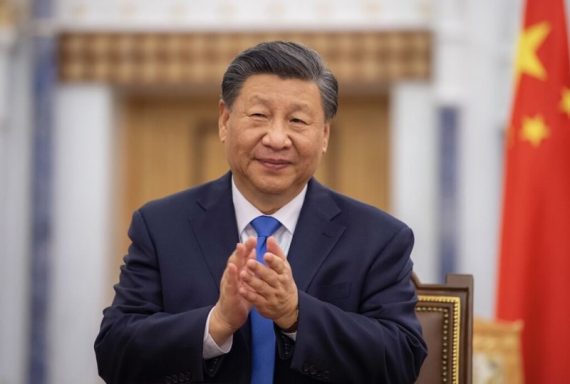A
s geopolitical tensions between the United States and China persist, experts are warning of a significant shift in global dynamics akin to a neomedieval era. The assessment, put forth by Timothy Heath, a senior international defense researcher at RAND, suggests that traditional paradigms of industrial superpowers are giving way to a new age characterized by weakened governments, societal fragmentation, and pervasive threats.
Heath’s analysis, outlined in a recent report, points to a series of trends indicating the erosion of state power and societal cohesion. Events such as the storming of the U.S. Capitol and the chaotic withdrawal from Afghanistan serve as harbingers of this transition.
According to Heath, these developments signal a departure from the norms of the past century, with the rivalry between the US and China resembling the fitful conflicts of the 14th century more than the cataclysmic world wars of the 20th.
Weakening of governments’ ability
Key to understanding this neomedieval shift is the weakening of governments’ ability to govern effectively and maintain legitimacy. Societal divisions are deepening, fueled by rising inequality and social unrest, while trust in government institutions reaches historic lows. Both the U.S. and China face internal challenges, with domestic issues often taking precedence over international conflicts.
In light of these trends, policymakers are urged to adopt a neomedieval mindset, recognizing the limitations of traditional notions of total war. Instead, conflicts are more likely to manifest in low-intensity skirmishes, cyber warfare, and economic competition. Decision-makers must navigate a complex landscape where competing global challenges vie for attention and resources.
The emergence of this neomedieval era is not unique to geopolitical powers alone. Russia’s recent military campaign in Ukraine serves as a stark reminder of the shift towards medieval-like tactics, including sieges and irregular conflict.
The Cold War is often cited as a reference point to understand the escalating rivalry between China and the United States. However, Timothy Heath, in assessing the global landscape of 2024, observes a stark departure from the conditions of the Cold War era.
Rising inequality fuels social unrest
Today, once-dominant governments grapple with governance challenges, while politics have become increasingly tribalistic. Rising inequality fuels social unrest and division, exemplified by a Pew Research Center survey revealing that just 20 percent of Americans trust the federal government to make the right decisions. The COVID-19 pandemic, hailed as one of the greatest national challenges, exacerbated societal fractures rather than fostering unity.
In China, similar trends of inequality and economic stagnation contribute to a souring national mood. Rampant crime and corruption exacerbate internal challenges, leading national leaders to rely heavily on repressive measures to maintain control and authority. Notably, China’s allocation of resources reflects this shift, with its internal security budget surpassing its defense budget for over a decade.
Ultimately, the neomedieval era challenges conventional understandings of global power dynamics, emphasizing the need for adaptive and nuanced approaches to international relations. As the US-China rivalry continues to evolve, experts caution against relying on outdated frameworks and advocate for strategies that reflect the complexities of the modern world.
Source: RAND Institute
Recommended





